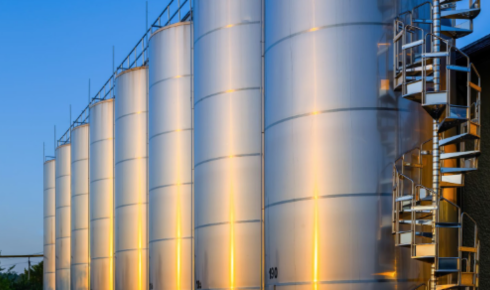One of the key issues that factories, food processing plants, and other large facilities tackle efficiently is the management of industrial waste. However, the conventional waste management systems can be energy-intensive and expensive to maintain. But there is a solution that is the anaerobic tank.
Anaerobic tank is a unique system to treat industrial waste devoid of using oxygen. It uses natural bacteria that decompose waste products once in a sealed environment. The process also keeps the amount of waste down. It has many advantages for industries.
If you are unsure about the importance of anaerobic tanks, this article will help you understand.
1. Efficient Waste Breakdown
Microbes are utilized in an anaerobic tank to break down organic waste materials, including fats, oils, grease, and biodegradable chemicals. Such a technique is more effective than aerobic systems in breaking down complex compounds, particularly in high-concentration wastes in commercial sectors such as dairy, breweries, and food processing.
Because anaerobic digestion occurs in a closed tank, it reduces odor and makes the processing more controlled. It resulted in clean effluent and reduced sludge.
2. Energy Production
Biogas generation is one of the most thrilling advantages of anaerobic tanks. When waste decays, it provides biogas that is rich in methane. It is a renewable source of energy that can be harnessed and used in generating power in generators, boilers, or even in the facility itself.
By reusing the biogas produced within its walls, industries can cut the expenditure of their energy bills and carbon footprint. It is a great move toward long-term self-sustainability in energy.
3. Cost-Effective Operation
Installing an anaerobic tank may require an initial investment, but the long-term savings are significant. Such systems are low on energy requirements relative to aerobic systems and are also low in terms of sludge mass, thereby making their disposal inexpensive.
Industries that use anaerobic digestion systems often see a return on investment through lower energy costs, reduced waste hauling expenses, and improved regulatory compliance. Over time, these savings add up, making it a financially smart choice.
4. Reduced Environmental Impact
Anaerobic tanks offer an environmentally friendly approach to waste management. They reduce greenhouse gas emissions by capturing methane that would otherwise escape into the atmosphere.
Moreover, the treated water from the system can often be reused or safely discharged according to environmental standards. By using an anaerobic tank, industries can lower their ecological impact and contribute to cleaner air, land, and water.
5. Compliance with Regulations
Industrial waste is heavily regulated, and failure to manage it properly can result in fines or legal issues. Anaerobic digestion systems help companies meet environmental laws by ensuring proper treatment of wastewater and organic byproducts.
With an anaerobic tank, businesses can stay ahead of compliance requirements while demonstrating a commitment to environmental responsibility. This can also improve their brand image and build trust with customers and regulatory bodies. However, it’s not just a tool. it’s a step toward smarter, greener industrial practices.

